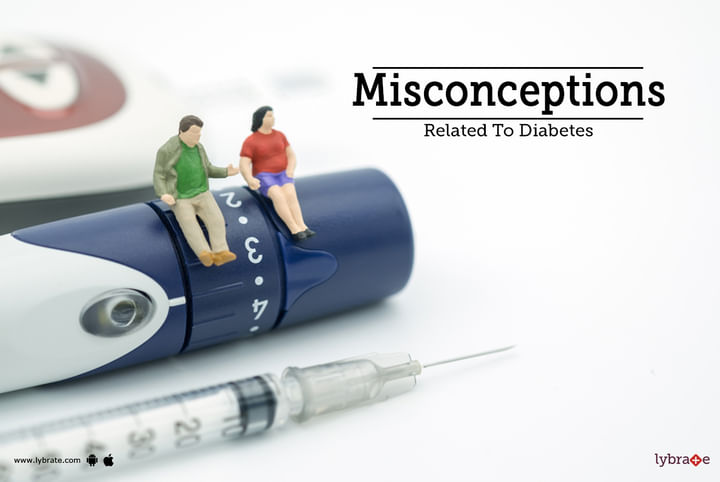Misconceptions Related To Diabetes
Myth 1
You have to be overweight or obese to develop diabetes
Fact: Being overweight or obese is a risk factor for type 2 diabetes, but it is not a direct cause. Some people who are overweight may not develop type 2 diabetes, while some who have a healthy weight may develop type 2 diabetes. Type 1 diabetes is not preventable and is not associated with weight, physical inactivity, or any other lifestyle factor.
Myth 2
Eating too much sugar causes diabetes
Fact: No. Type 1 diabetes is caused by genetics and other factors that trigger the onset of the disease. Type 2 diabetes is caused by genetics and lifestyle factors.
Myth 3
People with diabetes can't eat sweets or chocolate
Fact: Sweets or chocolate can be taken in lesser quantities provided you have a healthy meal plan and exercise regularly with controlled blood sugar levels.
Myth 4
People with diabetes should eat special diabetic foods
Fact: As such 'diabetic” foods have no special benefit. Most of them still raise the blood glucose levels, are usually more expensive, and some of them can also have a laxative effect if they contain sugar alcohols.
Myth 5
Only people with type 1 diabetes need insulin
Fact: Fifty percent of people with type 2 diabetes will need insulin after 6-10 years of being diagnosed with diabetes because the pancreas produces less insulin over time.
Myth 6
Fruits are good for you, so it is okay to eat as much as you want
Fact: Fruits are indeed healthy. However, they contain carbohydrates, which are broken down into sugar by your body. It is important that you eat only as much fruit as stated in your diabetic diet plan.
Myth 7
Diabetes is contagious
Fact: Diabetes is not contagious. However, keep in mind that diabetes type 2 runs in families.
Myth 8
You only get type 2 diabetes when you are old
Fact: Type 2 diabetes usually develops over the age of 45 years but is now increasing in younger age groups, including children, adolescents, and young adults. The onset of type 1 diabetes occurs most frequently in people under 30 years.


+1.svg)
